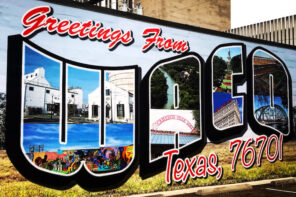With Romney as frontrunner (a status confirmed by last night’s debates), anti-Mormon sentiment has received far more serious attention in the press than it did just four years ago, and most of that coverage has been sympathetic to Mormons—thanks to the very disagreeable foils we’ve found in Robert Jeffress and Bryan Fischer, and perhaps as well to a greater degree of popular cultural cache that has come from The Book of Mormon musical, the “I’m a Mormon” media campaign, and other fronts in this so-called “Mormon moment.”
Cable hosts from Anderson Cooper to Chris Matthews piled on Pastor Jeffress. Some news outlets even drew a comparison between Jeffress and Jeremiah Wright. At the Los Angeles Times, Jonah Goldberg criticized Jeffress for confirming stereotypes of the GOP as “theocratic and bigoted.” Slate columnist William Saletan called anti-Mormonism “the prejudice of our age.”
In the last few days, I have also heard non-Mormon friends reflect on anti-Mormon sentiment they’ve witnessed. Sunday night, a friend who is studying to be an Episcopal priest related that a fellow Episcopalian recently criticized a congregational speaker by lowering her voice and whispering, disdainfully: “He looked like a Mormon.” This morning, a good friend raised a Southern Baptist and now a minister in the United Church of Christ remembered receiving and studying the “Confronting the Cults” pamphlet from the Southern Baptist Convention when she was a teenager and afterwards trying to reconcile its depiction of Mormons with the girls she knew at school.
Mormons I’ve spoken with report a range of experiences, often varying by region: some report experiencing no social prejudice connected to their Mormonism, while others offer anecdotes of social ostracization and exclusion.
An LDS woman in South Carolina relates that she was uninvited from singing a solo at a community Christmas Eve service when it was discovered that she was Mormon.
Another in Pennsylvania relates that a Baptist neighbor invited her kids over to play, but withdrew the invitation when she found out they were LDS.
A man in a Texas college town writes that one mother at the neighborhood pool instructed her children not to play with his Mormon kids.
Another woman in Texas remembers that her LDS congregation was banned from participating in a community-wide Christmas event and that non-Church members once barged into Sunday meetings shouting that Mormons were cult members and devil worshippers.
A man who grew up in upstate New York remembers being singled out as Mormon for ridicule by his seventh grade English teacher and graded so punitively that school officials had to be involved.
And more than a few report workplace and job interview situations where their Mormonism—once discovered—has generated negative and hostile responses.
Still, many Mormons are quick to observe that their LDS Church membership has conferred benefits and even advantages and that whatever social prejudice they’ve encountered cannot be compared to racism.
Perhaps what Mormons experience may be more appropriately compared to the nature of contemporary anti-Semitism, although I feel cautious even drawing this comparison given the tremendous scope of anti-Jewish violence and genocide in the twentieth century. The anti-Mormon violence of the nineteenth century, while deadly, simply does not compare.
But anti-Mormon sentiment is real, and it does impact the way Mormons perceive ourselves and participate in public life—this much I know from experience. I have my own set of experiences to relate, some quite threatening, some just garden-variety human foolishness. But here’s the most recent: a few weeks ago, I met my parents for dinner at a restaurant. With me, I brought a copy of the “Mitt is so Mormon” jokes that had been roiling my Twitter account all afternoon. As I regaled them with joke after joke, eliciting loud laughter from them both, I noticed that in spite of their enjoyment, my mother and father started to cast their eyes around the room nervously every time I uttered the words “Mitt is so Mormon.” As though someone might be listening. As though someone might not like the simple fact of who we are.




